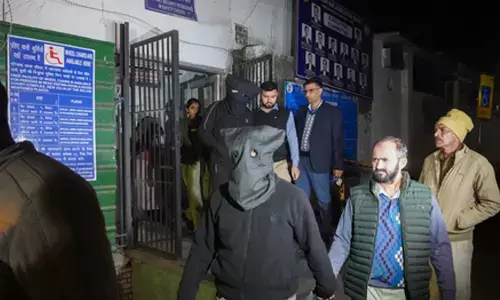Economists call for new means to garner revenue

Eminent economists have highlighted the need for consolidation of debt by centre and states
New Delhi: Eminent economists have highlighted the need for consolidation of debt by centre and states, suggesting that the governments look at fresh avenues to garner revenue, like mines auction, along with expenditure reduction.
During their meeting with the 15th Finance Commission on Wednesday, 12 economists also made a case for improving the quality of budgeting, such that governments should not budget for a low fiscal deficit, knowing fully well that it cannot be achieved.
Since the terms of reference of the 15th Finance Commission says that the 2011 census on population would be used to determine the allocation of resources to India's states, instead of decades-old practice of taking 1971 census, the economists also suggested instituting an "incentive structure" in devolution taking into account that the proportion of elderly population is becoming significantly different across states.
On the issue of state government debt, the economists said states are at vastly different stages of debt consolidation and reaching the Fiscal Responsibility and Budget Management (FRBM) targets would involve an "extremely difficult adjustment" path for a few states.
"However, it is important that the union government and state governments, as a whole, to consolidate their debt position.
According to some economists, expenditure adjustments alone cannot bring about the required adjustment; fresh revenue-raising efforts should also be made.
Proceeds from auctioning of mines could be a potential source of revenue," the economists said during the meeting in Mumbai according to an official statement.
The N K Singh panel to review the then FRBM rules had in 2017 recommended a debt-to-GDP ratio of 40 per cent for the central government and 20 per cent for combined state governments.
It also suggested a glide path to bring down fiscal deficit of 2.5 per cent of GDP by 2022-23. "The quality of budgeting needs to improve.
Governments should not budget for a low fiscal deficit, knowing fully well that it cannot be achieved. Projections of revenues from GST is tricky, but not impossible if one can work with the available data," the economists said.
The government had missed the budgeted fiscal deficit target of 3.3 per cent in 2018-19 and revised it to 3.4 per cent.
Deviating from the path laid down in the FRBM Act, the government has pegged the fiscal deficit for current financial year at 3.4 per cent of GDP, as against the original target of 3.1 per cent, largely driven by increased spending to provide income support to small farmers and tax rebates in an election year.
There are indications that the fiscal deficit to gross state domestic product (GSDP) ratio of the states taken as a whole is gradually declining after the spike seen in 2015-16 and 2016-17, it added.
The economists also highlighted the need to adopt a total view on the borrowing requirements of the public sector as a whole, encompassing off-budget transactions, borrowings of the public sector undertakings and contingent liabilities of both the union and state governments.
"This is important from many angles, including debt sustainability, fiscal transparency and proper coordination of fiscal and monetary policies," the statement said.
The economists also said that whether the increased tax devolution by the 14th Finance Commission has led to improvements in the social spending of state governments needs to be "carefully examined".
"There is possibly a mismatch between the demand and supply of state development loans, which can affect the cost of borrowings of state governments in the next five years.
Given the maturity profile of state loans, there can also be repayment pressure on these loans during the period of the 15th Finance Commission," the economists said.









